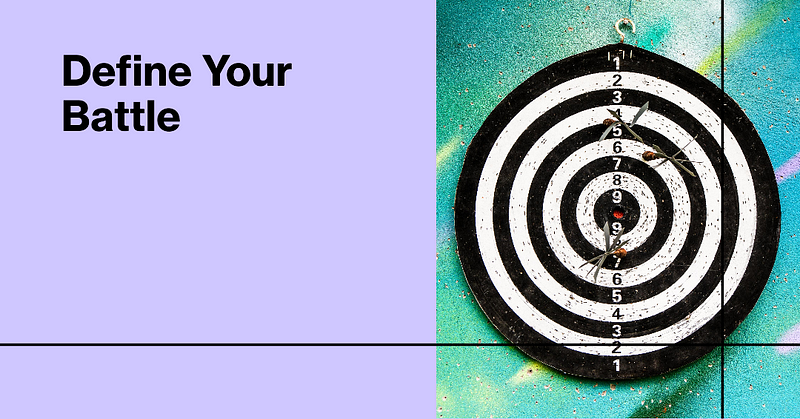Choosing Your Battles: A Guide to Smart Conflict Management
Written on
Chapter 1: Understanding Conflict
In every aspect of life—whether at work, at home, or within our relationships—conflicts and challenges are inevitable. There are times when we feel compelled to advocate for ourselves, uphold our values, or express our opinions. However, it’s crucial to recognize that not every conflict warrants our energy. Engaging in every battle can lead to exhaustion, frustration, and dissatisfaction. Therefore, it’s essential to select our confrontations judiciously and concentrate on those that truly matter.
So, how can we identify which conflicts are worth engaging in and which should be gracefully let go? Here are some guiding questions and tips:
Section 1.1: Defining Your Objectives
Before diving into a conflict, reflect on what you hope to accomplish. Are you aiming to resolve an issue, enhance a situation, articulate your feelings, or simply prove a point? If your objective is constructive and attainable, then it may be a battle worth undertaking. Conversely, if your aim is destructive, unrealistic, or rooted in ego, it may be wise to rethink your strategy.
For instance, if you disagree with your manager about a project timeline, your goal might be to negotiate a more feasible deadline that benefits both parties. This is a constructive aim that can foster collaboration. On the other hand, if your goal is simply to demonstrate your superiority or vent your frustrations, you risk harming your relationship and your professional reputation.
Subsection 1.1.1: Assessing Costs and Benefits

Another effective method for determining the worth of a battle is to evaluate its potential costs and benefits. What are the likely outcomes of this conflict? What risks and rewards are involved? Consider how this confrontation will impact your well-being, relationships, and future.
For example, if you are at odds with your spouse regarding parenting styles, the benefits of resolving this conflict might include reaching an understanding, improving your parenting skills, and fostering family harmony. While there may be temporary stress involved, the long-term benefits can outweigh these costs.
In contrast, if you find yourself in a dispute with a neighbor over the color of their fence, the potential benefits are likely minimal. Here, the costs—time, energy, and emotional resources—may not justify the confrontation, suggesting it may be better to let it go.
Section 1.2: Timing and Context
Timing can significantly influence whether a conflict is worth pursuing. Even if a battle is deemed important, the context in which it occurs may not be suitable. It’s vital to ensure you have the necessary resources, support, and information to engage effectively. Additionally, the environment should foster a constructive dialogue.
Consider, for instance, confronting a friend about a troubling issue. It’s advisable to choose a moment when both of you are calm and at ease, rather than when stressed or preoccupied. Opting for a private and serene setting rather than a noisy public space can greatly enhance the chances of a respectful and productive conversation.
Chapter 2: Recommended Reading
To further explore the art of conflict resolution, consider these insightful books:
- The Art of War by Sun Tzu: A classic text on strategy and tactics, offering timeless wisdom on battling adversaries and achieving success in various contexts.
- The 33 Strategies of War by Robert Greene: A modern interpretation of ancient warfare principles applicable to business, politics, and relationships.
- Crucial Conversations: Tools for Talking When Stakes Are High: A practical guide on navigating difficult discussions with confidence and skill.
- The Four Agreements: A Practical Guide to Personal Freedom by Don Miguel Ruiz: Offers transformative agreements that can help eliminate unnecessary conflicts.
- The Power of Positive Thinking by Norman Vincent Peale: A motivational resource for overcoming negativity and fostering a positive mindset.
The first video titled "When to Walk Away: Choose Your Battles Wisely" provides valuable insights into recognizing which conflicts deserve your attention and which do not.
The second video, "Pick Your Battles Wisely (when to Stand Up & when to Back Off)," explores strategies for discerning when to engage and when to let go.
Conclusion
Choosing your battles thoughtfully is not an indicator of weakness; rather, it reflects wisdom and maturity. It demonstrates a prioritization of peace over pride and emphasizes the importance of nurturing quality relationships over engaging in unnecessary disputes. Life is too brief and valuable to squander on trivial conflicts. Focus your efforts on what truly matters and gracefully relinquish the rest.
I hope you found this article insightful! Feel free to share your thoughts or feedback.